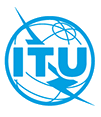Broadband Policies/Plans & Applications
| Project No | 9RAS13043 |
| Title | Broadband Policies/Plans & Applications |
| Description | The World Summit on Information Society (WSIS) has emphasized the role of information and communication infrastructure, including broadband, in accelerating the social and economic progress of countries, and the well-being of all individuals, communities and people. With the growth of broadband and the increasing emphasis of governments on leveraging the broadband infrastructure for socio-economic development, there is a need to build human capacity that would create appropriate enabling environment for broadband proliferation and use. ITU Member States have recognized the importance of promoting broadband uptake and urban and rural areas as well as the need for creating appropriate skills (WTDC-10, Regional Initiatives). |
| Area of Action |
Regulatory & Market Environment Technology & Network Development Least Developed Countries & SIDS |
| Status | Implemented |
| Time Frame | From 1/3/2013 To 30/9/2014 |
| Implementing Agency | ITU |
| Cooperation Agency | Ministries, Regulatory Agencies for Communications |
| Report 1 |
|
| Report 2 |
|
| Report 3 |
|
| Financial Scale (CHF) | 100'000 - 500'000 |
| Achievements |
6 countries assisted specifically on the development and preparation of a national broadband policy or plan: Lao PDR, Brunei Darussalam, Philippines, Marshall Islands, Vanuatu and St. Lucia. Consultation workshops were held in each beneficiary country to raise the profile of broadband and the project. Most workshops generated media interest. The most successful were those where the national leadership demonstrated its interest and commitment through attendance. National workshops were organized involving key persons from the Ministry, regulatory authority, operators, and other sector specific ministries where best practices on state of broadband and ITU initiatives were shared. Key issues to stimulate broadband in respective countries were discussed and panel sessions were organized. 223 national experts received training through the national workshops in the beneficiary countries. |



